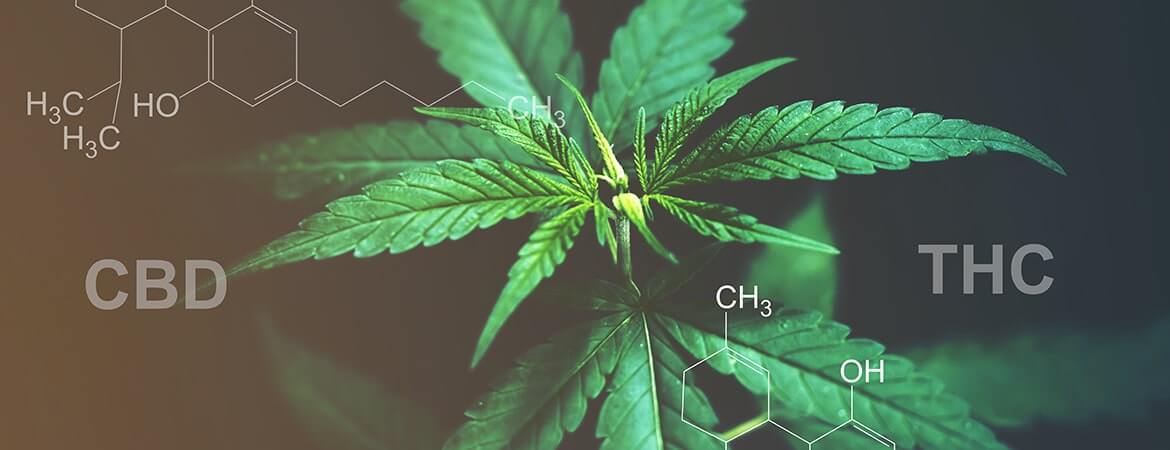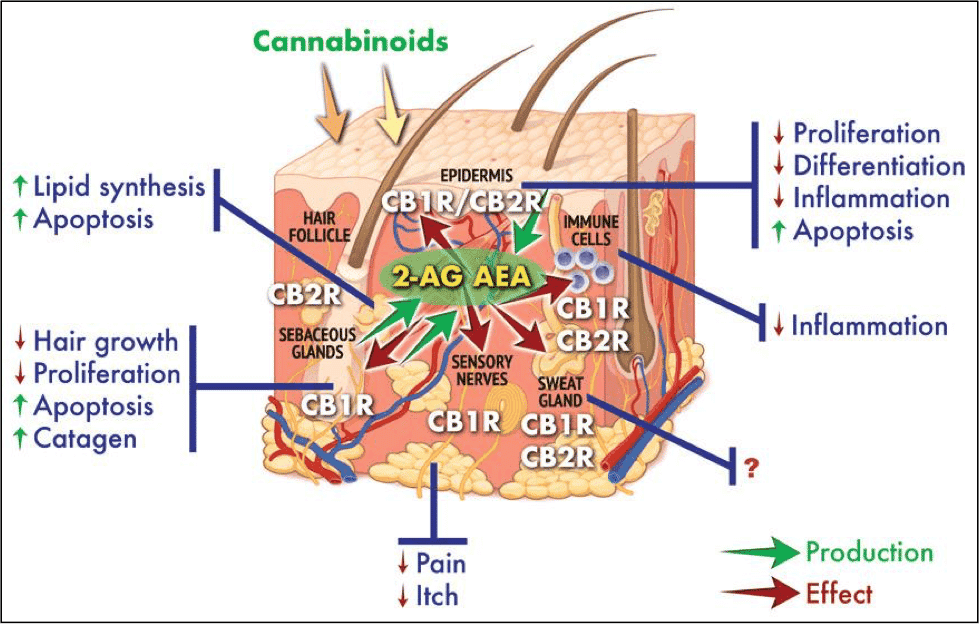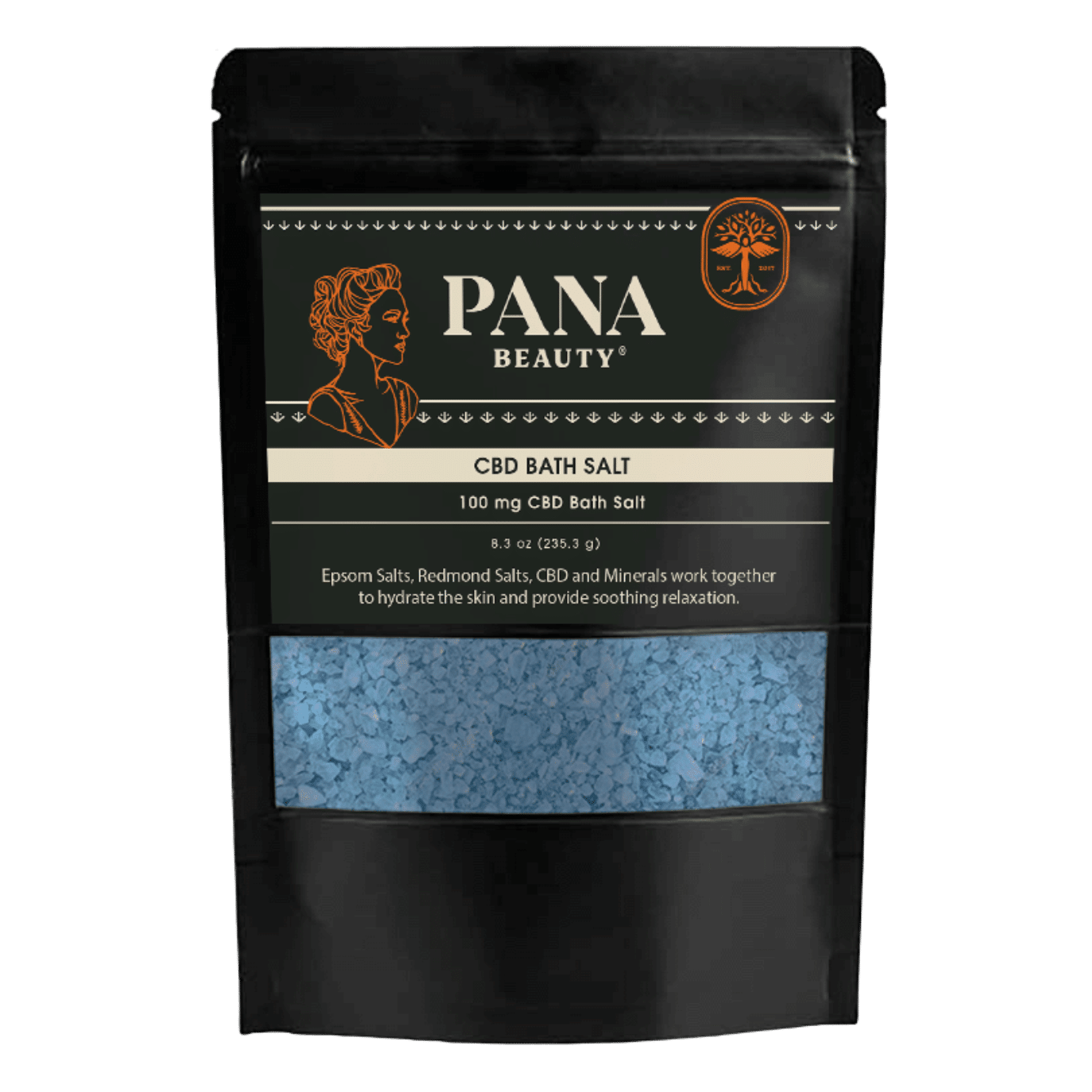Psoriasis is a fairly common and very uncomfortable skin condition. Those who have it are always looking for good ways to manage it and make themselves more comfortable. There are many potential medications and resources available to psoriasis sufferers, but sometimes these treatments do not work or have unpleasant side effects. The last decade or so of research has suggested that there may be another resource that has yet to be truly tapped into: cannabidiol (CBD).
What is Psoriasis?
Psoriasis is a chronic skin condition that creates patches of red, inflamed, itchy, scaly skin. It tends to show up on joints, torso, and/or the scalp. Researchers believe it to be caused by an autoimmune deficiency but are unsure what causes it to start in the first place. Genetics play a role as do environmental conditions, but it is uncertain the exact cause. While there is no current cure for the condition, psoriasis can go into remission for a time. It tends to come back during flare ups caused by illness or stress.
There are several different forms of the condition (five to be exact), but they all have one important thing in common: they are not fun to deal with.
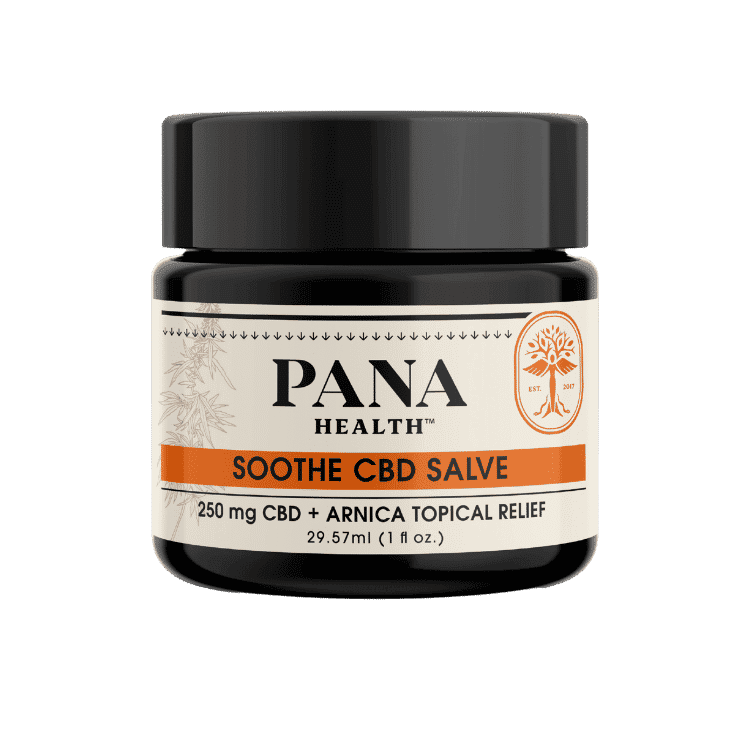
Getting into the details of CBD
Before we can talk about how CBD may be able to help reduce the discomfort of psoriasis, it is best to be sure that there is a solid understanding of what CBD is.
Found in cannabis plants, like hemp and marijuana, are several chemical compounds known as cannabinoids. So far, scientists have identified over 113 cannabinoids, one of which is CBD.
CBD is definitely one of the better-known cannabinoids, but it is not the most famous. That title goes to tetrahydrocannabinol (THC). But why would we talk about THC when this article is about CBD? It is because CBD and THC often get lumped together, leading to many misconceptions about CBD. One big one is that CBD will cause a high. THC has a psychoactive effect, meaning that it causes a high. CBD, on the other hand, is not psychoactive. It does not cause any sort of high.

-
Sale!

Stress Less Bundle
Bundle Price: $27.63 Add to cart -
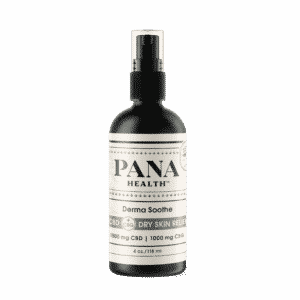
Derma Soothe CBD + CBG Dry Skin Relief
$9.95 Add to cart -
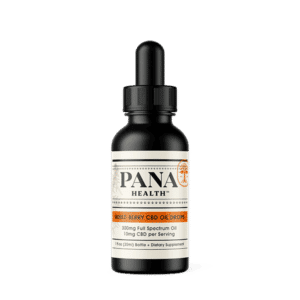
CBD Oil Drops (Full Spectrum)
From: $17.45 Select options This product has multiple variants. The options may be chosen on the product page
Another misconception is that CBD is illegal. This one comes, not so much from it being lumped with THC, but more from the fact that THC is extracted from cannabis plants. However, one specific cannabis plant is in fact legal in the United States. This plant is hemp. Its legalization comes mainly from the fact that it is bred to have very little THC (less then 0.3% to be exact). This means that any product derived from hemp is also legal. CBD manufacturers have always used hemp over marijuana because, not only does it have less THC, it also has high levels of CBD.
CBD products come in many different varieties. Most of them are in some sort of oral form, meaning you take them via the mouth. They can be capsules or edibles. Many people prefer tinctures and oils that you just place a drop of in your mouth. One form of CBD product that is not oral are topicals. These are lotions, cremes, and salves that have CBD infused in them. You simply apply these where you want them and wait for the CBD to do its work. The appeal of topicals is that they provide a more localized effect. Oral products are more likely to give you an overall effect. But because the CBD in topicals do not enter the bloodstream, their effect is going to stay in the area that the product is applied.
This is a basic overview of CBD. There is much to know about the cannabinoid and continued research on CBD that is aiding us to a greater understanding of potential health effects.
What CBD topicals work for psoriasis?
First, let’s lay out what CBD may have to offer for those who have psoriasis.
One of the main issues associated with psoriasis is inflammation which causes some of the discomfort. Luckily, CBD is well-known for its potential effect on inflammation. There have been many studies on how CBD reduces inflammation. Many of them, if not all, have shown some very encouraging promise. For example, this study found that CBD was greatly able to bring down intestinal inflammation without unwanted psychoactive effects. This could be promising for those who are trying to deal with the inflammation caused by psoriasis.
While there have not been many studies about CBD and psoriasis specifically, that does not mean that there are not any. This study wanted to see how CBD effects psoriasis. They found that receptors that often interact with CBD seem to have some control over psoriasis flare ups. They found that the CBD was able to help with soothing the psoriasis. This study is still preliminary and there still needs to be more research done, but this study does show that CBD holds a lot of promise.
So, what CBD topicals should you use, if you are interested in using CBD to help with your psoriasis? Well, before you can decide on that you need to discuss it with your healthcare professional. While CBD does not appear to have any serious side effects, it could potentially interact poorly with other medications. It is good to talk to a healthcare professional before starting to use CBD.
Once you have done that, you can start looking for a good CBD topical. The main thing you are going to want to look for is a CBD topical that is made for soothing. Some CBD topicals are made with acne and anti-aging in mind. While those may be able to help, they have different ingredients that may not be what you are looking for. Instead look for topicals like our Soothe CBD salve. It is made with helping with inflammation in mind.
There is a lot out there that CBD may be able to offer people. One of these things may be some relief from the discomfort that psoriasis brings. If you struggle with the condition, it may be worth trying some out to see how it could help you. If you’d like to know more about CBD topicals, click here!
Sources:
https://www.healthline.com/health/psoriasis#symptoms-of-psoriasis
https://www.mayoclinic.org/diseases-conditions/psoriasis/symptoms-causes/syc-20355840

